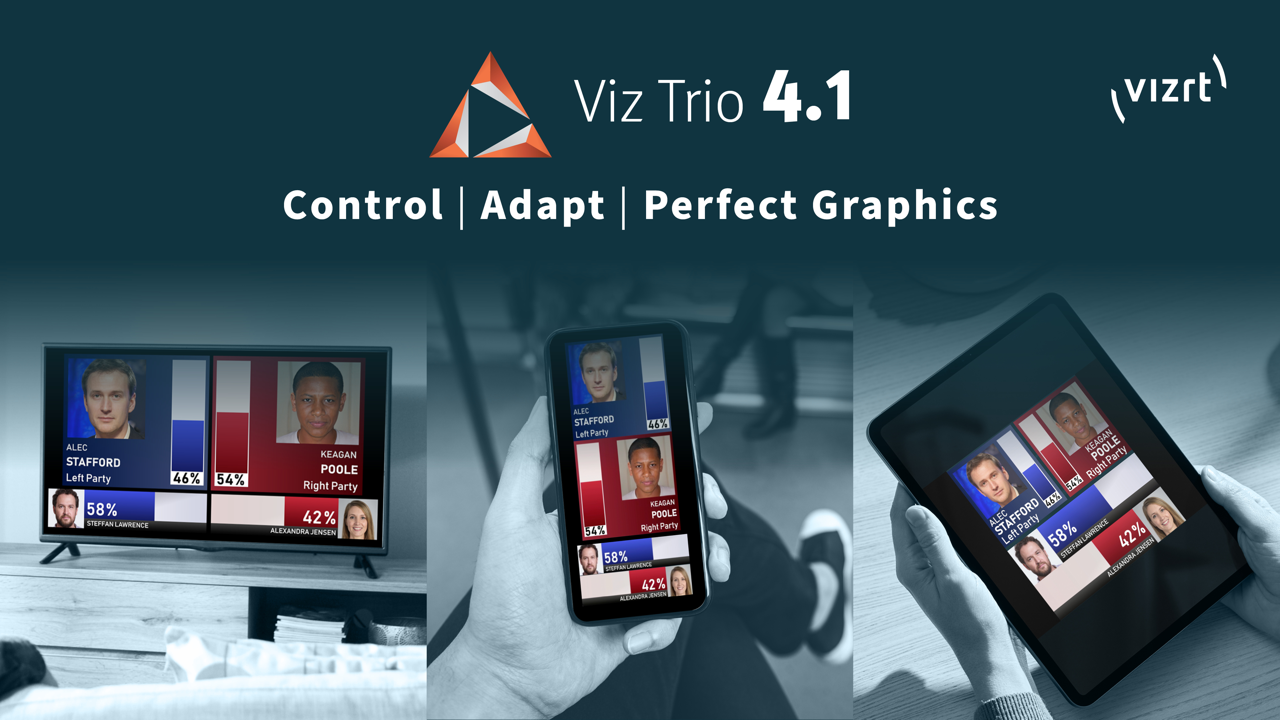Vizrt has unveiled the Viz Trio 4.1. Viz Trio 4.1 enables streamlined control and playout of Vizrt’s latest graphics innovation—Adaptive Graphics—designed for and delivered to any platform of choice.
“At the top level of production, there should never be a choice between speed and quality," said Gerhard Lang, CTO, Vizrt. "To be competitive in today’s production environment, broadcasters need to deliver a consistent level of quality and a uniform branding experience. This is exactly what Adaptive Graphics and Viz Trio help them to do."
[3 Things to Know about Vizrt's New Viz Engine 5]
Why Adaptive Graphics?
An increasingly autonomous audience and a shifting media and channel landscape create an extremely challenging environment for broadcasters. Not only must content be high quality and timely, but it also needs to be adapted to work equally well across multiple output platforms—without compromising on quality or endangering brand consistency. And as with any other challenge, it needs to be solved without adding resources.
Adaptive Graphics provides a single workflow-multi-platform content delivery that automatically adjusts resolution and format to support specific display devices. Effectively enabling graphics to be created once and published multiple times to multiple platforms—all as part of a single production line.
[Vizrt Enhances NDI-native Switching Solution with More Cloud-ready Features]
Adaptive Graphics: Perfect Control
An intuitive interface in Viz Trio 4.1 lets operators instantly switch the live graphics preview between different platforms - broadcast, mobile, square or any custom ratio. This allows them to monitor and adjust every output format, to ensure that the adapted graphics look amazing on all aspect ratios and deliver maximum audience engagement.
A single operator can playout the Adaptive Graphics scenes to all channels, saving time and resources for both broadcast and online production. This also eliminates the need to go back and forth with the design department to modify graphics, as the single graphics scene already contains the needed information to make the graphic look good in its designated format. By automating some of the multiplatform workflow, more resources can be dedicated to creating original and creative content.
[AV Network's top stories, product news, and expert insights]
